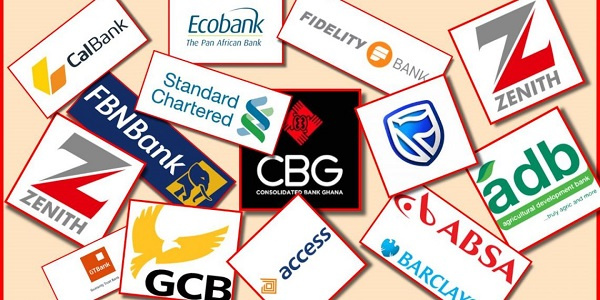Banking Sector Assets Surge to GHS 323.2 Billion in June 2024
Investment growth was a standout, rising by 19.2% to GH¢107.2 billion, up from 11.0% a year earlier, buoyed by a rebound in both short- and long-term instruments. The report highlighted a sharp reversal in long-term securities, which grew by 28.6%, having contracted by 23.2% in June 2023.

The Bank of Ghana’s most recent Monetary Policy Report indicates a sharp expansion in the country’s banking sector, with total assets rising by 33.3% year-on-year to GH¢323.2 billion as of June 2024. This marks a notable acceleration from the 21.2% growth recorded in June 2023, driven primarily by a robust increase in deposits and a weakening cedi.
According to the report, foreign assets surged by 57.6%, although this is a deceleration from the 74.5% growth recorded the previous year. Domestic assets saw an improvement, growing by 31%, up from 17.8% in June 2023. The share of foreign assets in total banking sector assets rose to 10.2%, from 8.6% in the previous year, while domestic assets fell to 89.8% from 91.4%.
- Advertisement -
Investment growth was a standout, rising by 19.2% to GH¢107.2 billion, up from 11.0% a year earlier, buoyed by a rebound in both short- and long-term instruments. The report highlighted a sharp reversal in long-term securities, which grew by 28.6%, having contracted by 23.2% in June 2023.
- Advertisement -
Short-term bills, however, saw a significant slowdown, growing by just 7.3%, down from the previous year’s triple-digit surge of 149.6%. As a result, the share of investments in total assets declined to 33.2%, from 37.1% the previous year.
Loans and advances registered modest growth, with gross loans rising by 15.6% to GH¢84.5 billion, a slight increase from the 15.4% growth in June 2023. Net loans grew at a more moderate pace of 10.3%, down from 11.3% in the previous period.
- Advertisement -
Deposits, which remain the primary funding source for the sector, grew by 31.1% to GH¢245.9 billion, a slowdown from the 42.8% growth in June 2023. The foreign currency component of deposits expanded by 29.8%, a reflection of the currency depreciation’s impact.
Borrowings saw a notable resurgence, increasing by 44.4% to GH¢23.2 billion, after a sharp contraction of 39.1% the previous year. This growth was driven by a rebound in both short-term foreign and domestic borrowings, while long-term borrowing contracted. Short-term domestic borrowings soared by 83%, compared to a 33.6% contraction in June 2023, while short-term foreign borrowings grew by 33.2%.
The overall picture reflects a sector experiencing solid asset growth, supported by stronger deposits and a resurgence in borrowing, but facing challenges in maintaining the momentum seen in earlier periods of investment and lending growth.
Source:norvanreports.com
- Advertisement -



